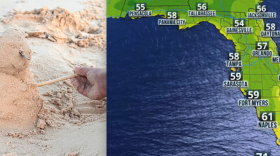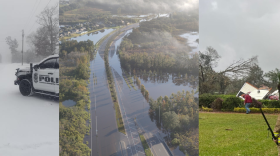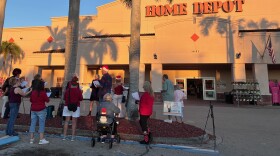The estate of an Illinois woman who died earlier this year from a listeria infection has filed a federal lawsuit against a Sarasota ice cream company that health officials have connected to a multistate outbreak.
The lawsuit filed Tuesday in the Middle District of Florida claims that Mary Billman died in January after eating contaminated ice cream produced by Big Olaf Creamery.
The company released a statement Sunday saying that the link between its ice cream and the listeria outbreak has not been confirmed.
They say they've been working with health officials since learning of the possible contamination.
The U.S. Centers for Disease Control and Prevention says the listeria outbreak made almost two dozen people sick in 10 states.
A notice from the CDC posted on its website Saturday said consumers who have ice cream from the creamery should throw away any of those products, as well as clean any areas, containers, and serving utensils that may have touched those products.
CDC officials say listeria symptoms usually start within two weeks after eating contaminated food. Pregnant people, newborns, adults over 65, and people with weakened immune systems are at highest risk for listeria.
WUSF staff writer Mark Schreiner contributed to this report.
Copyright 2022 WUSF Public Media - WUSF 89.7. To see more, visit WUSF Public Media - WUSF 89.7. 9(MDAyMTYyMTU5MDEyOTc4NzE4ODNmYWEwYQ004))








